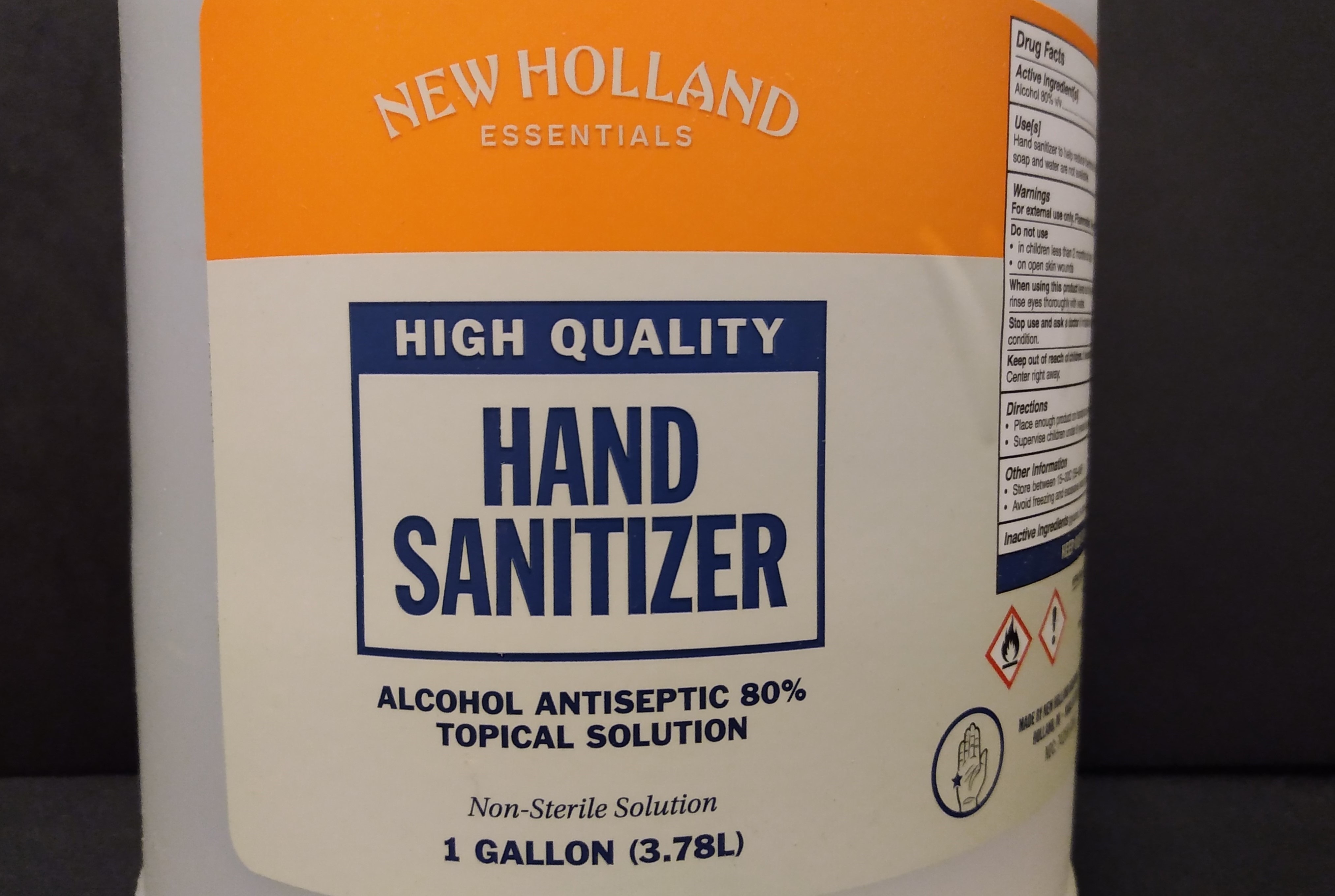Craft distillers who stepped up to make hand sanitizer last spring were hit with a surprise $14,060 fee – until public outcry made HHS blink.
Life got pretty hectic early last spring as the novel coronavirus began to spread in the United States. Disinfectant wipes, N95 respirator masks and hand sanitizer flew off store shelves and, soon, couldn’t be found anywhere for less than opportunistic gouge-level prices, if they were found at all.
Americans can be a resourceful bunch, though, and together, those with the means at hand found ways to help out. Nimble Etsy crafters pivoted from their usual wares to sewing thousands of face masks. Ranchers and farmers left without buyers gave food to hungry people whose incomes disappeared. Restaurants became clearinghouses for donations, bulk foods broken down into household-sized packages, and toilet paper. Distributors and truckers who normally supply restaurants began delivering to grocery stores. Distillers used their expertise to whip up batches of hand sanitizer, often donating it to health care facilities in their time of need.
It seems a lifetime ago, when we were united in a common cause.
Soon enough, though, the distillers churning out gallons of sanitizer started having difficulties. By law, alcohol destined for use as a disinfectant is taxed and regulated differently from the more fun kind, but the FDA and the Alcohol and Tobacco Tax and Trade Bureau cleared the way for breweries to temporarily switch things up without the usual red tape.
The FDA’s rules also require distillers to blend a bittering agent into alcohol-based sanitizers so that nobody will try to drink the stuff. The usual chemical, Bitrex (denatonium benzoate) is the world’s most bitter substance. It’s so strong that any brewery equipment that used to manufacture sanitizer was forever ruined for making drinkable spirits again. That’s a cost our patriotic distillers ended up swallowing.
With many fewer people visiting bars and restaurants during the pandemic, the booze biz has been on ice this year. Profit margins are razor-thin. So it was with great surprise and dismay that the craft distillers who jumped in to make sanitizer this year found themselves faced with yet another expense. Late last month, the FDA announced that these distilleries were classified as “monograph drug facilities,” producers of over-the-counter (OTC) drugs, and a clause in last year’s CARES Act required such businesses to pay an annual fee of $14,060. A surprise bill of this magnitude could wipe out a year’s profits for a small business, or force them to close their doors entirely.
According to a statement made to Insider, the FDA couldn’t change the law or waive the fee, even if the distilleries donated every gallon of sanitizer they made. Congress would have to intervene.
Righteous outrage radiated from the media and across the industry. Within the week, HHS Chief of Staff Brian Harrison tweeted an announcement that the agency would not enforce the law. A longer statement explained that the fee was not cleared through HHS leadership, and HHS would not authorize enforcement of the regulation during the pandemic.

It’s a happy ending for the country’s intrepid distillers, and the right thing to do for any small business whose innovative thinking and quick action help the country navigate the coronavirus pandemic. However, it’s worth asking how such a regulation, encoded into law, could be brushed aside so swiftly and easily under pressure. Is this something which should happen often under the rule of law, and if so, how can we make sure it happens for those who need it the most, instead of merely the loudest and most powerful interests?
Related: Can Beer Save the World?


Join the conversation!